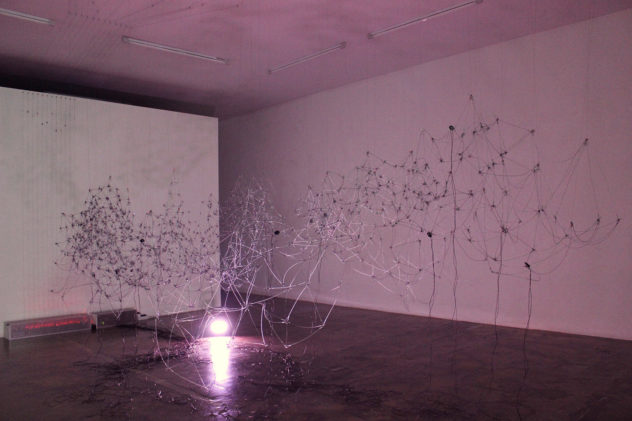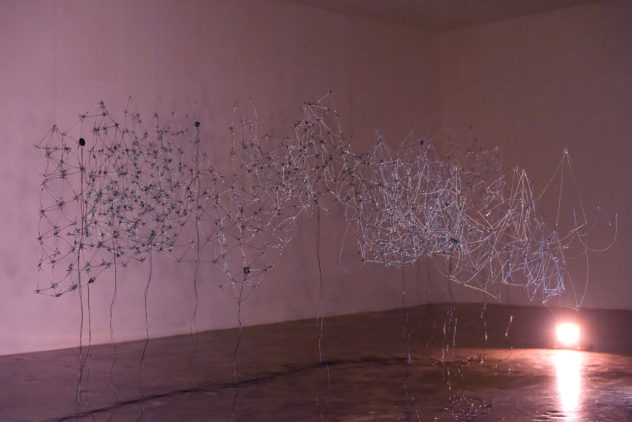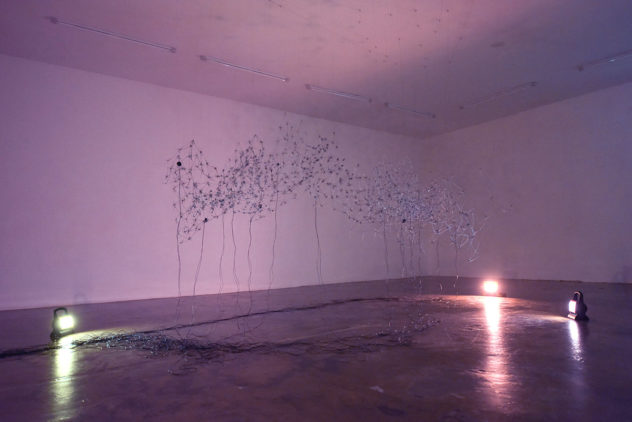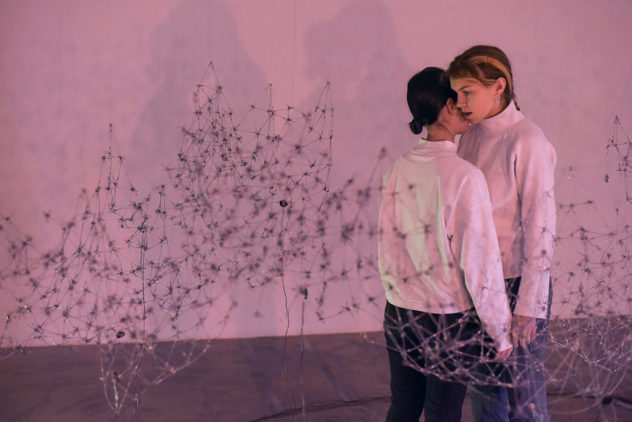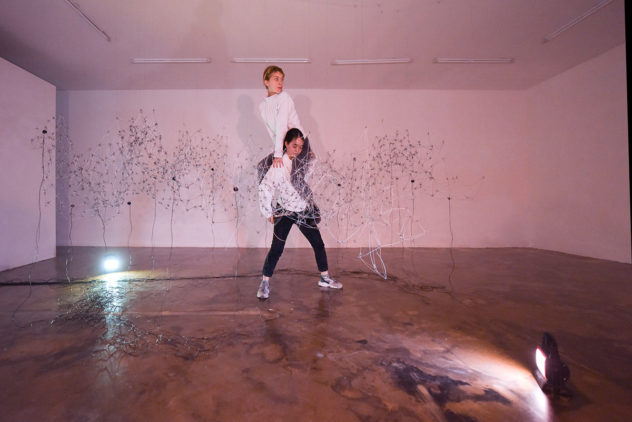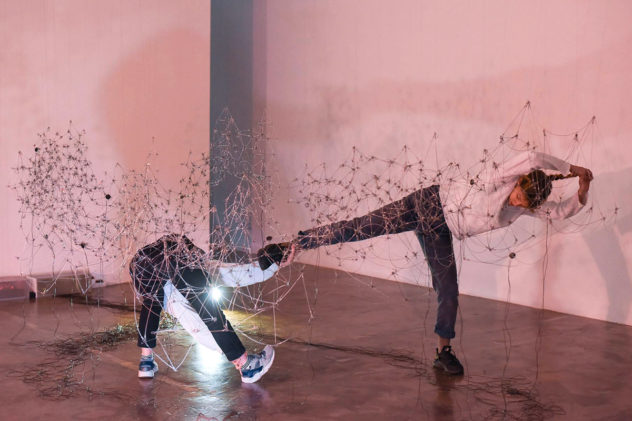Juliana Herrero
on the filaments, there where the plateau rises
Opening
Nov. 27th
7:00 pm
Introduction: Daniela Hahn
7:30 pm
Yoh Morishita | Julia Müllner
Performative dialogues #1
Exibition duration: Nov. 28th – Dec. 20th, 2019
Tuesday to Saturday 4:00 pm - 7:00 pm
Realisation:
Juliana Herrero
Artist / Sound-kinetic Installation
Arno Aumayr
Motion technique & Software
Yoh Morishita | Julia Müllner
Performance
special thanks to Jakob Scheid for the support!
Zusatzevent:
Yoh Morishita | Julia Müllner
Performative dialogues #2
Wednesday, Dec. 4th 2019, 7:30 pm
on the filaments, there where the plateau rises zielt – mit emanzipatorischer Absicht – darauf ab, mittels der Praxis der „Sound Floating Landscapes“ die Möglichkeit einer „virtuellrealen“ Welt zu untersuchen. Durch die Verwendung von (digitalem) Found Footage und eigens generierten Materialien, die selbst wieder fragmentiert, neu kombiniert und geschichtet werden, werden fiktionale Realitäten geschaffen, die das Reale in das Virtuelle, und das Virtuelle in das Reale kippen lassen und in „latente“ Bewegung gebracht wird. Die Audio-Anteile von der Arbeit nehmen ortsbasierte Daten wie Geokoordinaten - in auditiver Übersetzung auf und setzen sie zueinander in Beziehung mittels Flüstern und Konversation. Die Stimme(n) der Maschine treffen dabei auf Sprachaufnahmen, um Phonetik und den Rhythmus gesprochener Sprache zu befragen; die menschliche Stimme, im Gegensatz zur künstlich-maschinellen und zum Material, steht als Metapher für die dialektische Beziehung zwischen Mensch und Technologie, die sich in der affektiven Wahrnehmung wiederholt und für Veränderungsprozesse unserer realen und imaginären Kartographien.
Juliana Herrero
wurde 1975 in Choele Choel, RN, Argentinien geboren, Studium Von Tanz, Musik und Architektur in Südamerika, nach 2002 an der Städelschule in Frankfurt/Main.
Juliana Herrero nahm seit 2002 an internationalen Ausstellungen teil (u.a. im Semper Depot, der Kunstzelle WUK und dem Künstlerhaus Wien, Maison de l'Argentine, Cité Internationale Universitaire de Paris, Centro Cultural Borges in Buenos Aires, Kajaani Art Museum und K.H. Rendlunds Museum in Kokkola Finnland).
on the filaments, there where the plateau rises attempts in an emancipatory way to investigate a meta- scape of a "virtual-real" world by means of the practice of "Sound Floating Landscapes". Through the use of (digital) found footage and specially generated materials, which are fragmented, recombined and re-layered, fictional realities are created that allow the real to tilt into the virtual, and the virtual into the real, those emerge physically as filaments which are suspended in "latent" movement. The audio components of the work record location-based data such as geo-coordinates - in audio translation and relate them to each other through whispering and conversation. The voice(s) of the machine meet speech recordings to question phonetics and the rhythm of spoken language; the human voice, in contrast to the artificial-machine and the material, stands as a metaphor for the dialectical relationship between human being and technology, which is repeated in affective perception and for processes of change in our real and imaginary cartographies.
on the filaments, there where the plateau rises intenta investigar - con intención emancipatoria -la posibilidad de un mundo "virtual-real" a través de la práctica de "Paisajes Flotantes Sonoros". A través del uso de materiales (digitales) encontrados y por otro lado especialmente generados, que a su vez son fragmentados, recombinados y estratificados, se crean realidades ficcionales que permiten que lo real se incline hacia lo virtual, y lo virtual hacia lo real, suspendiendo la obra en movimiento "latente". Los componentes de audio de la obra toman datos de ubicación, como las coordenadas geográficas, que traducidos en audio se relacionan entre sí mediante susurros y conversaciones. La voz de la máquina se contrapone con las grabaciones del habla cuestionando la fonética y el ritmo del lenguaje; la voz humana, contrasta con la de la máquina artificial y la materialidad de la red. La obra se vuelve metáfora de la relación dialéctica entre hombre y tecnología, que se repite en la percepción afectiva y de los procesos de cambio de nuestras cartografías reales e imaginarias.
